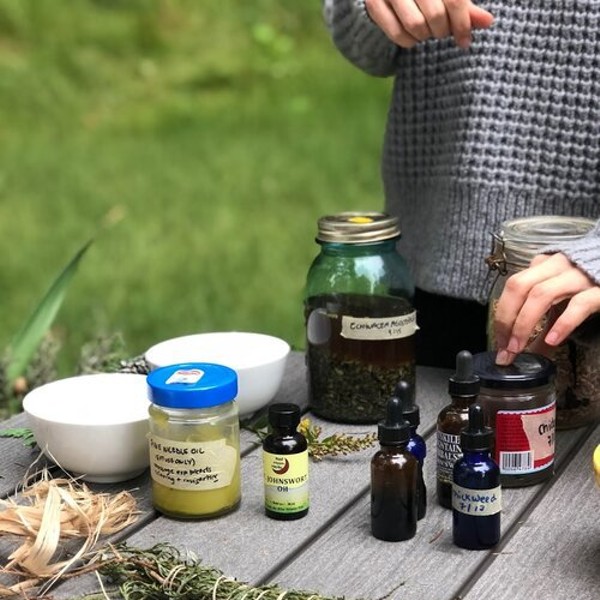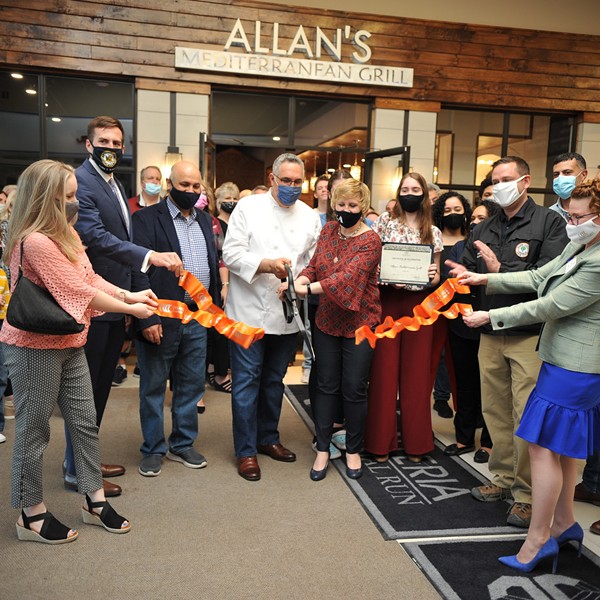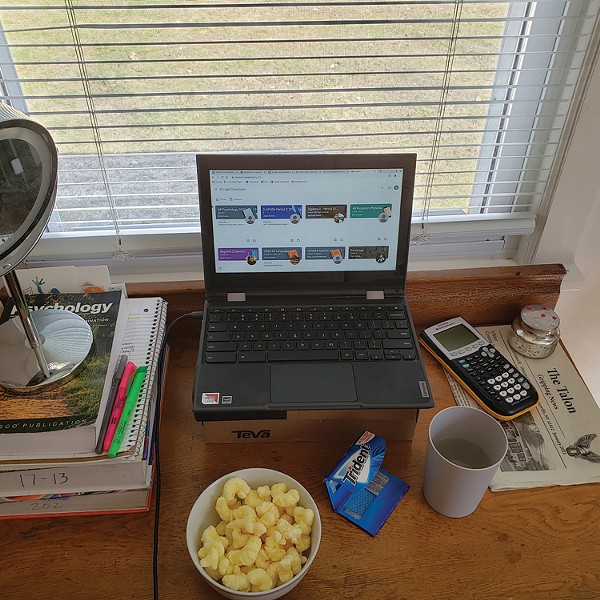We are staying home, we are staying safe, we are #flatteningthecurve. We are waking up to beg the children to go back to sleep—just five more minutes.
We make strong coffee and divide the day on whiteboards. We color code to distinguish who needs to be working and who wrangling. We wait for the homework that the teacher sends each morning to rescue us. We look at our phones to reassure ourselves that other people are still there, that everyone we know and all the celebrities we love are all also sitting around with their hair too long and their eyebrows gone rogue. Someone has made bread! Someone has seen something delightful on a walk. Someone has illustrated a daily inspiration. Someone has organized their closet, their garage, their pantry, their freezer, their junk drawer. We are bored. We are terrified. We are running low on toilet paper, which we joke about without ever actually addressing what we are preparing to do in its absence.
We keep calm. We carry on—though, what, exactly that means we don't have any idea at all. What should we carry? And to where? We have our worries, our lame jokes, our muted rage, and our insistence that this could all be worse.
We hide in the bathroom to read the news because it's the only privacy left. In there, we can read the email from friends who work in medicine. There is nothing we can do to help them but listen and stay home—which we are mostly doing. We know that we are lucky, incredibly lucky, to be so far behind the front lines. Sometimes we go outside to verify that the world still exists, that our towns and city blocks are waiting for us. Hang on, we think, as we pass by. We are trying to get back to you.
Every day we are losing uncles and grandparents and mothers and colleagues. We are furloughed, we are laid off. We are stranded in hastily rented vacation homes. We are sitting, and watching, and waiting. We make cakes for each other's birthdays and eat them together on a video chat. We spend most of our time figuring out when we will work and what we will eat.
What is it like? We ask ourselves. Will it be like the last time the markets tanked, or the time before that? Will it be like waiting to be drafted into war, or like waiting for a hurricane to change paths? We solemnly declare that nothing will ever be normal again, but we remember saying that the last time too.
We reread the library books that were due weeks ago. We change our Zoom backgrounds. We have all seen that meme, by now, but just in case we send it to someone who might not have, yet. We sew facemasks. We remain distant, socially. We wave to our neighbors from our windows. We wonder what we'll remember of this, in the end—when it ends. When the skies are clear we go out for long walks in the woods, stepping off the paths when others approach. We are more aware of springtime than we've been in years; the air has never been clearer. Everywhere there are signs of nature, happily filling the voids we've left. The sunsets are spectacular; we chart the phases of the moon before bedtime, because she at least keeps changing.
At night, when the children are asleep, we unmake their pillow forts and clear their art projects from the table. We enjoy the first silence of the day. But soon we'll fill it, talking about the children and everything they said and did all day long. What else can we do? We drink whatever's handy. We call a friend who "has it" and lives alone; we sit up together until they can take Tylenol again. We check in with people we haven't talked to in years, and sign every email, 'hope you're well' in a way we've never really meant before.
We lie in bed, rotating through the dark and silent night, waiting for sleep to fall over us, and to dream, again, of a world waiting for us to return.
Kristopher Jansma is the director of the Creative Writing Program at SUNY New Paltz and the author of, most recently, Why We Came to the City.
















